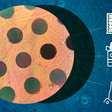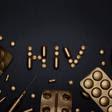 ‘Supermountains’ may be responsible for creating life on Earth
‘Supermountains’ may be responsible for creating life on Earth
There’s an old saying that “you can’t get blood from a stone” — but a new study reveals that the rise and fall of gigantic mountains in Earth’s past may be the reason there’s life on our planet today.
 A Brazilian berry may help treat cancer, study reveals
A Brazilian berry may help treat cancer, study reveals
A fruit found in the Amazon rainforest may help treat various cancers, according to researchers from the Université de Montréal. The berry, called camu-camu, contains a polyphenol known as castalagin.
 Black History Month: 2 in 3 Americans say civil rights have significantly regressed
Black History Month: 2 in 3 Americans say civil rights have significantly regressed
A survey of 2,000 adults – 1,000 white and 1,000 non-white Americans – asked them how they commemorate Black History Month. People shared that they observe the month by gathering with their family and friends, watching documentaries about Black history with their children, or attending local celebrations in their communities.
 Survey: 55% of high schoolers don’t think college is needed for successful career
Survey: 55% of high schoolers don’t think college is needed for successful career
Teens today only want one thing: to forge their own success and happiness in their future careers. A recent survey of 2,000 American high school students found a third of respondents have no post-graduation plans.
 Revolutionary material stronger than steel yet as light as plastic developed by MIT scientists
Revolutionary material stronger than steel yet as light as plastic developed by MIT scientists
Scientists at MIT have developed a material that is as light as plastic — but stronger than steel. They believe the material could revolutionize the car, mobile phone and building industries.
 ‘Tree of life’ keeps forests alive for thousands of years, scientists discover
‘Tree of life’ keeps forests alive for thousands of years, scientists discover
A rare breed of ancient trees appears to be the key to life for forests all over the world. Researchers at The Morton Arboretum say in many forests which date back centuries, there are a small number of trees which provide genetic and evolutionary benefits to the rest of the environment.
 Divorce in the genes? Couples therapy more helpful for sensitive people
Divorce in the genes? Couples therapy more helpful for sensitive people
Does couples therapy work for everyone, or is divorce simply in some people’s genes? It turns out it might be a little of both. Scientists from Queen Mary University London and Denver University find that individuals who are genetically more sensitive will likely get more out of couples therapy sessions than others.
 How long will your dog live? New genetic study hopes to crack the code of canine longevity
How long will your dog live? New genetic study hopes to crack the code of canine longevity
The general rule of thumb is that “dog years” equate to about seven human years. However, a new study finds a dog’s lifespan is a lot more complicated than that.
 Your home’s air quality may be worse than your local office building
Your home’s air quality may be worse than your local office building
A home should be a safe haven, but new research suggests the very air people breathe in their apartments and houses may be inflicting serious damage.
 New study reveals why COVID-19 often causes loss of smell
New study reveals why COVID-19 often causes loss of smell
Loss of smell has been synonymous with COVID-19 since the very beginning of the pandemic. Now, scientists from New York University and Columbia University report the discovery of a “mechanism” that may explain COVID-connected loss of smell.
 More aggressive HIV strain discovered in Netherlands, but experts say no reason for panic
More aggressive HIV strain discovered in Netherlands, but experts say no reason for panic
A more aggressive HIV strain that could cause patients to develop AIDS twice as fast has been discovered in the Netherlands. Despite its strength, experts aren’t sounding the alarm, saying there is no health crisis to worry about.
 3 in 5 people ‘articulate’ themselves with big words to sound smarter — even if they don’t know the meanings
3 in 5 people ‘articulate’ themselves with big words to sound smarter — even if they don’t know the meanings
New survey reveals “articulate,” “accolade,” and “brevity” top list of words that make people sound smarter. Conversely, “faux pas,” “audacious,” and “caveat” are words that wind up making people come off as pretentious instead.
 No more nightlight? Even a dim room can keep kids from getting healthy sleep
No more nightlight? Even a dim room can keep kids from getting healthy sleep
A child’s night light may do more than keep away the monsters hiding under their bed. A recent study by a team at the University of Colorado at Boulder suggests even slight exposure to dim light can disrupt a youngster’s sleep.
 Rosemary may help fight COVID-19, other inflammatory diseases like Alzheimer’s
Rosemary may help fight COVID-19, other inflammatory diseases like Alzheimer’s
A compound found in the medicinal and culinary herb rosemary may prove useful in the fight against COVID-19, according to a team from the Scripps Research Institute.
 2 in 3 dating app users more likely to ‘swipe right’ on a profile that shows a pet
2 in 3 dating app users more likely to ‘swipe right’ on a profile that shows a pet
More than seven in 10 pet parents see red flags if a potential partner doesn’t treat their own pets like family. A survey of 2,000 cat and dog owners also explores other common warning signs and deal-breakers that singles often encounter while dating with pets.
 Taking fish oil during pregnancy may ensure a smarter, more focused child
Taking fish oil during pregnancy may ensure a smarter, more focused child
Mothers-to-be who want their kids to get good grades in school should take fish oil while pregnant, a study suggests. Children exposed to the benefits of fish oil in the womb had faster problem-solving skills, better attention focus, and a stronger memory at age ten and beyond.
 Cannabis farms with heavy metals in soil could be creating toxic marijuana products
Cannabis farms with heavy metals in soil could be creating toxic marijuana products
Cannabis, regardless of what product it’s in, may be harmful to use — depending on where it’s coming from. Researchers at Penn State say cannabis’ ability to absorb metals from soil make it possible for these relatively safe products to expose users to toxic chemicals.
 Exercise can help relieve dry, itchy eyes
Exercise can help relieve dry, itchy eyes
Exercise keeps our bodies healthy and our moods positive. Now, new research finds a solid workout session can also provide some serious relief for dry, itchy eyes.
